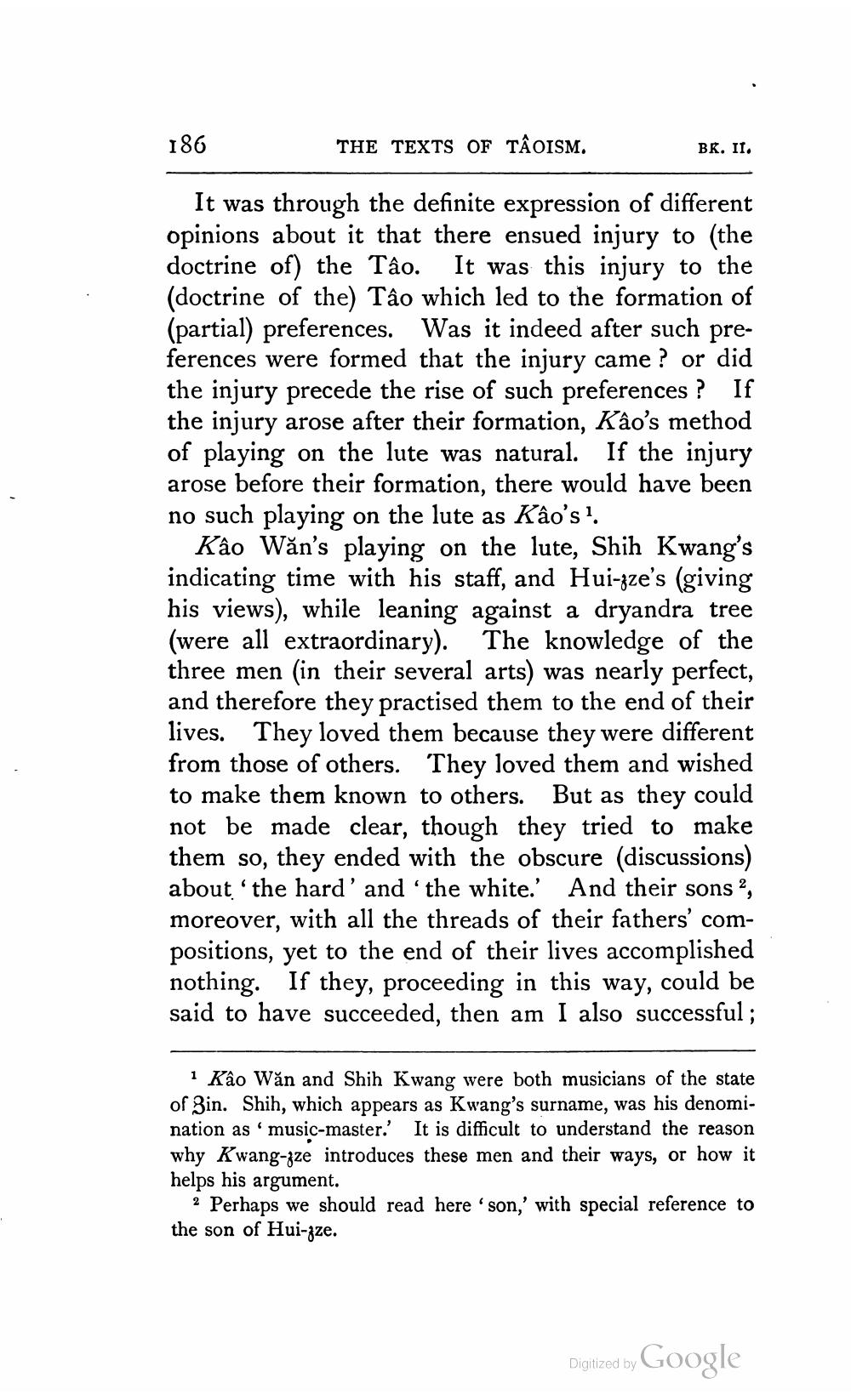________________
186
THE TEXTS OF TẦOISM.
BK. II.
It was through the definite expression of different opinions about it that there ensued injury to (the doctrine of) the Tâo. It was this injury to the (doctrine of the) Tâo which led to the formation of (partial) preferences. Was it indeed after such preferences were formed that the injury came ? or did the injury precede the rise of such preferences ? If the injury arose after their formation, Kâo's method of playing on the lute was natural. If the injury arose before their formation, there would have been no such playing on the lute as Kâo's?
Kâo Wăn's playing on the lute, Shih Kwang's indicating time with his staff, and Hui-zze's (giving his views), while leaning against a dryandra tree (were all extraordinary). The knowledge of the three men (in their several arts) was nearly perfect, and therefore they practised them to the end of their lives. They loved them because they were different from those of others. They loved them and wished to make them known to others. But as they could not be made clear, though they tried to make them so, they ended with the obscure (discussions) about 'the hard' and 'the white.' And their sons ?, moreover, with all the threads of their fathers' compositions, yet to the end of their lives accomplished nothing. If they, proceeding in this way, could be said to have succeeded, then am I also successful :
1 Kâo Wăn and Shih Kwang were both musicians of the state of Zin. Shih, which appears as Kwang's surname, was his denomination as 'music-master. It is difficult to understand the reason why Kwang-zze introduces these men and their ways, or how it helps his argument.
2 Perhaps we should read here 'son,' with special reference to the son of Hui-zze.
Digitized by Google




